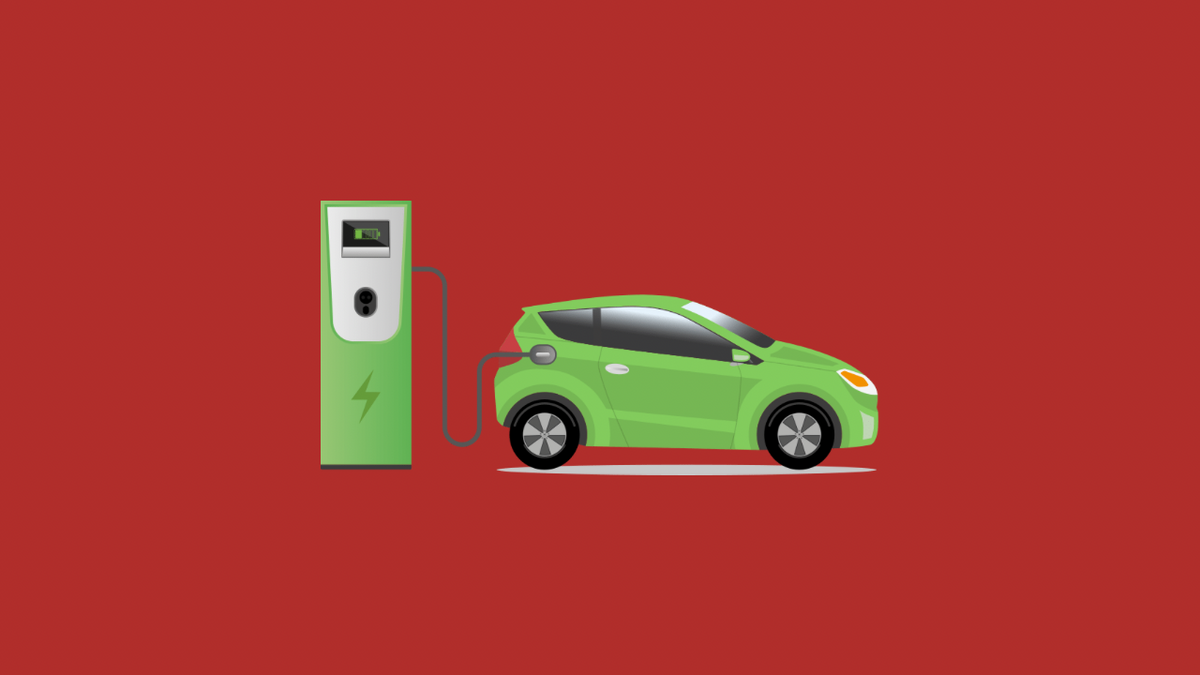Diversification Drive

Hi ZipLawyer! I'm Ludo Lugnani and this is ZipLaw: an independent newsletter covering unique news stories. We explain how each story impacts law firms and their clients so that you can stand out in interviews and applications and develop your Commercial Awareness!
Today's newsletter is a 7 min read:
- 🚗 Diversification Drive: Saudi Arabia wants to become a leader in the electric cars market
- ➕ Plus: Eurozone shows good signs, four-day week works, Putin's address and Israel's reform bill.
First time reading? Subscribe here and get all our newsletters in your inbox!
📰 News Briefing
- 📈 Good news for the euro zone as S&P Global purchasing managers' index rose to 52.3 in February, up from January's reading of 50.3. This score above 50 indicates growth and was buoyed by activity in the service sector, which increased at its fastest rate since June.
- 💼 In the largest-ever trial of a four-day work week, most companies involved in the UK decided not to return to the traditional five-day practice. Around 2,900 workers and 61 companies, from banks to fast-food restaurants, took part and found that employee turnover and stress mostly fell while output remained flat or even increased. This was achieved by cutting back on meetings to make workdays more efficient.
- 🇷🇺 In a state-of-the-nation address to Russia's parliament, President Vladimir Putin blamed the West entirely for the situation in Ukraine, which the Kremlin refers to as a "special operation." Meanwhile, President Joe Biden arrived in Poland, following a surprise trip to Kyiv to meet with President Volodymyr Zelensky. Putin also announced Russia's suspension of its participation in New START, its last remaining nuclear-arms-reduction treaty with the US.
- ⚖️ Israel's parliament voted to advance a legal-reform bill that will limit the power of the judiciary. This move was met with tens of thousands of protesters in cities across the country. Inside parliament, opposition lawmakers raised Israeli flags and shouted during the bill's debate.
🤿 Deep Dive
Diversification Drive
In brief:
- Saudi Arabia has long tried to launch its own car industry, but with no success to show for it. Now, the kingdom is taking another crack at it - this time with electric vehicles (EVs).
Time to Diversify
The EV initiative is part of the country's ambitious diversification drive to wean itself off its reliance on oil income, which is its main revenue source as the world's largest energy exporter. The kingdom plans to pour billions into the project to create an electric vehicle manufacturing hub, aiming to produce 500,000 cars per year by 2030.
A Level Playing Field
So why go electric? Well, the petrol engine market is extremely difficult to break into due to the dominance of established carmakers in Europe, the US and Japan. On the other hand, the battery-powered market offers a more level playing field, which could put Saudi Arabia against other big electric vehicle producers such as China, Germany, and the US. In addition, the country can use its financial muscle to invest and take a lead in the EV market.
- Boost Production: The key to the Saudi Arabia's EV plan is the creation of Ceer, the country's first electric vehicle brand. The country hopes will produce 170,000 cars a year in partnership with Taiwan's technology group Foxconn and BMW. The first cars are planned to go on sale in 2025 at the affordable end of the market. The Saudi government aims to have 30% of all vehicles in Riyadh powered by batteries by 2030.
Plan for the Future
The establishment of an electric vehicle industry would significantly expand the local labor force, teach workers new skills, and create jobs in the private sector, attracting foreign direct investment.
Saudi Arabia's broader economic plan includes the creation of the futuristic new city of Neom, a financial center in Riyadh, and tourist resorts. The country will also continue its spending spree on sports and technology companies abroad. This initiative will also cut the kingdom's import bill, which is important since transportation accounts for about 15% of the Saudi import bill and is the single largest consumer of foreign currency.
- Challenges ahead: The electric vehicle industry has also been hit by inflation and supply chain bottlenecks of minerals and components that could disrupt Saudi Arabia's plans. Because of this, the Public Investment Fund (PIF) has launched a company to invest in mining abroad to secure its supply of lithium and other minerals used in batteries. At the same time, Australian battery manufacturer EV Metals is planning a lithium hydroxide plant in the kingdom.
How does this Impact Law Firms and their Clients?
Note: In this section, we consider how law firms' clients may be affected by the story we discussed. We then explain how law firms can help, and which particular legal departments could see an increase in work and why.
💼 What does this mean for law firm's clients?
Automotive Clients
Companies in the petrol engine market could see further competition as Saudi Arabia's powers a global shift towards EVs. This could negatively affect their sales and profitability especially if they decide to pursue a solely "petrol-based" production strategy. On the other hand, this initiative also presents investment opportunities for automotive industry companies. For example, the US-based Lucid Motors, in which Saudi Arabia acquired a majority stake costing roughly $2bn, intends to produce about a quarter of the Saudi target of 500,000 electric cars per year. This presents opportunities for Lucid Motors to expand its operations and increase its market share in the electric vehicle industry.
Mining and Natural Resources Clients
The production of electric vehicles requires a significant amount of minerals, such as lithium, which is used in electric vehicle batteries. As Saudi Arabia aims to establish an electric vehicle industry, it could create a significant demand for these minerals. This demand could lead to increased investment in mining and natural resources companies involved in the production of these minerals, creating new business opportunities. The Public Investment Fund (PIF) has launched a company to invest in mining abroad to secure its supply of lithium and other minerals used in batteries. Saudi Arabia will be keen to secure stable access to such resources to ensure its EV production can be consistent and match up to other EV producers.
Battery Producers
As part of its initiative, Saudi Arabia has signed contracts with Hyundai and Chinese electric vehicle group Enovate. This move could create competition for existing battery producer companies, as new players enter the market. Additionally, if Saudi Arabia is successful in creating a domestic electric vehicle industry, it could create demand for domestic battery production, potentially impacting existing battery producer companies that are not able to compete on price or production scale.
⚖ Which legal departments would this impact?
Planning and Infrastructure
Developing EV charging infrastructure: As Saudi Arabia transitions towards electric vehicles, it will require a significant investment in electric vehicle charging infrastructure. The Planning and Infrastructure legal department would advise clients on the regulatory framework for developing and operating electric vehicle charging stations in the country. They would also assist in obtaining the necessary permits and licenses for these projects.
- Example: This department would advise a client in the EV charging industry on the regulatory requirements for developing and operating an electric vehicle charging station in Saudi Arabia.
Construction of EV manufacturing plants: With the goal of producing 500,000 electric cars annually by 2030, Saudi Arabia is investing in the construction of electric vehicle manufacturing plants. The Planning and Infrastructure legal department would advise clients on the regulatory and legal framework for the construction of these manufacturing plants, including planning regulations, and environmental permitting requirements.
- Example: This department would advise a client such as Australian battery manufacturer EV Metals on the regulatory requirements for the construction of a lithium hydroxide plant in the kingdom.
Corporate
Investment opportunities: Corporate lawyers would advise car manufacturers on the legal implications of investing in the electric vehicle industry in Saudi Arabia. This would include issues related to foreign investment, taxation, and intellectual property rights. They would also be involved in drafting partnership agreements between local and foreign investors as part of EV-related projects.
- Example: If a car manufacturer wanted to partner with a Saudi Arabian company to manufacture electric vehicles, corporate lawyers would draft the partnership agreement, outlining the responsibilities and obligations of each party, and ensure that it complies with local laws and regulations.
Supply chain and logistics agreements: Corporate lawyers would advise mining companies on the legal implications of supplying minerals for the production of electric vehicle batteries in Saudi Arabia. This would include issues related to export and import regulations, intellectual property rights, and environmental laws. They would also be involved in drafting supply chain and logistics agreements between local and foreign companies.
- Example: If a mining company wanted to supply lithium for the production of electric vehicle batteries in Saudi Arabia, corporate lawyers would draft the supply chain agreement, outlining the responsibilities and obligations of each party, and ensure that it complies with local laws and regulations. This would be particularly relevant to the entities in which the PIF controlled entity has invested to secure its supply of lithium and other minerals used in batteries.
Environmental
Compliance with Environmental Regulations: As Saudi Arabia transitions to an electric vehicle industry, it is essential that the production of batteries and mining of lithium does not negatively impact the environment. The environmental legal department would advise clients in the car and mining industries on compliance with environmental regulations. The department can advise clients on the regulations that apply to their operations and how to comply with them.
- Example: The department can help mining companies understand the requirements for waste disposal and the impact of their operations on the local ecosystem. They can also advise car manufacturers on how to dispose of electric car batteries responsibly, and how to produce them to comply with environmental standards.
Drafting Environmental Impact Assessments: The environmental legal department can draft environmental impact assessments for new projects in the electric vehicle industry. They will need to ensure the assessments comply with local regulations, and consider all potential environmental impacts.
- Example: They can advise clients on how to minimize the environmental impact of their operations, such as using renewable energy sources in the manufacturing process. They may also be required to draft ESG-specific documentation to highlight the companies' compliance in the process of securing government funding for projects.
Commercial
Contractual Obligations: The commercial legal department would be responsible for advising clients on contractual obligations related to the supply of materials and components needed for electric vehicles.
- Examples: They would need to review and negotiate contracts with companies involved in the mining of lithium, which is a critical material used in batteries for electric vehicles. The department would also need to advise on supply agreements between these companies and electric vehicle manufacturers. They can also advise on payment obligations and services provided through EV charging infrastructure.
Regulatory Compliance: This department would also be responsible for advising companies on regulatory compliance related to the production and sale of electric vehicles. This would include advising on compliance with environmental regulations, safety standards, and other legal requirements.
- Example: The department would need to advise companies on compliance with regulations related to the disposal of electric vehicle batteries at the end of their lifecycle. They would also be responsible for advising companies on compliance with safety standards related to the production and use of electric vehicles.






